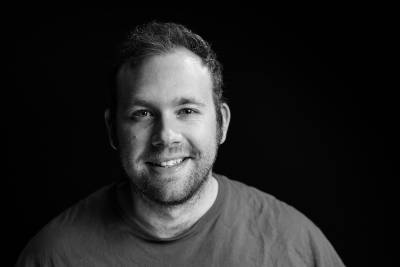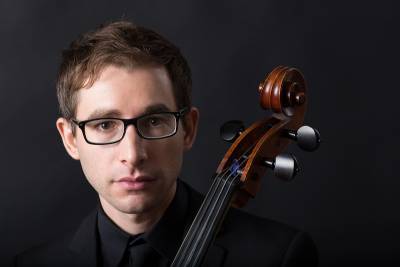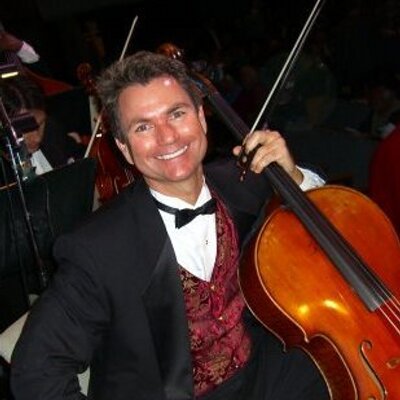ORION BRUTOCO
Orion Brutoco is the Founder and Executive Director at the Social Justice Team, where he is on a mission to help others rediscover their passions and life’s purpose. After graduating from Hawaii Pacific University with a Bachelor of Science in Advertising/Public Relations, Orion established himself in the sales and marketing field. Throughout his life he has always had a passion for helping others. He’s done this through volunteering with youth, at-risk youth, and other nonprofits concerned with raising advocating for social justice.
Orion began speaking in prisons and gravitated to a central role in managing volunteers at a juvenile rehabilitation camp for male youth offenders. It was here where he began the journey of his life’s purpose. In 2016 Orion began studying for his Master of Social Work at the University of Southern California’s Suzanne Dworak-Peck’s School of Social Work.
The mission of the Social Justice Team is to provide underserved populations in Los Angeles with free mental healthcare and diverse supportive services. These include classes in health, exercise, mindfulness, meditation, music and art.
JULIA WAGENBAUER
Julia Wagenbauer does health and fitness differently. Personal Trainer, Wellness Creator and All-Around Lightworker Julia’s philosophy is simple. She believes while you are more than your body, your body must support you for your entire lifetime. And since you only get ONE BODY, you might as well make it the best you can while elevating your mind, soul and spirit.
Julia works with clients online and in-person. And she approaches training and her training programs with the intention of building a supportive experience rather than driving towards a number on the scale or the latest fitness fad.
Julia’s clients are on a journey and when you work with her there’s no final destination or fixed point She’s passionate that you become your own advocate and your own champion.
“I work with women to fully embrace the belief that we are MORE than our bodies. Sometimes that work is done through personal training (online or in person) while other times it’s done through life coaching, workshops, or mindset work.
You see, this isn’t my job or even my career, it’s my lifestyle. I’m lucky enough to coach amazing humans like you who want to get better. Those who want to live in a way that roots them more deeply to their body AND soul. When you work with me there is no final destination or a fixed point it’s an ongoing journey and an aspiration.”
PETER MYERS
Praised for the warmth of his sound and range of color, American cellist Peter Myers (b. 1985) is internationally known as a chamber musician. A founding member of the Saguaro Piano Trio, which won first prize in the 2009 International Chamber Music Competition Hamburg, as well as SAKURA, a unique and innovative quintet of cellos (both currently Young-Ensembles-in-Residence with the Da Camera Society, Los Angeles).
Mr. Myers has appeared at the Marlboro, La Jolla, and Mozaic festivals, on tour with Musicians from Marlboro, and abroad in Germany, Italy, Japan, China, Australia, New Zealand, Mongolia, Laos, and Pakistan. Since 2017, he has held the position of Assistant Principal Cello with the San Francisco Opera; he has also performed as guest principal cellist of the St. Paul Chamber Orchestra. His mentors have included Ronald Leonard at the Colburn Conservatory and Ralph Kirshbaum at the University of Southern California. He plays on an 1876 cello by Claude-Augustin Miremont.
BENJAMIN LASH
Cellist Benjamin Lash was a top prizewinner in the Washington International Competition. Recent concerto performances include Tchaikovsky’s Rococo Variations and Haydn’s C Major Cello Concerto with the Colburn Orchestra, and Dvorak’s Cello Concerto with the Brentwood Symphony Orchestra. An avid chamber musician, Benjamin has participated in summer festivals including the Sarasota Music Festival, Taos, Aspen, Holland International Music Sessions, Fortissimo Fest in Bulgaria, and 2016 Franco-American Chamber Music Festival in Missillac, France.
Benjamin began studying cello at the age of six. In his early teens, as a first place winner of multiple Chicago area competitions, he performed concertos by Saint-Saens, Shostakovich, Hindemith, and Haydn. Benjamin received his Bachelors of Music from the Colburn Conservatory of Music where he studied with Ronald Leonard. He completed a Master of Music degree at the University of Southern California Thornton School of Music and is currently pursuing a Doctorate degree in cello performance. He is a recipient of the USC Music Faculty Endowed Scholarship and studies with Ralph Kirshbaum.
MICHAEL KAUFMAN
Michael Kaufman, explores sounds the cello isn’t supposed to make, be they ethereal scraping of the strings or industrial level strumming and banging,” said Mark Swed, LA Times. Passionately involved in contemporary music, Michael has premiered works written for him by composers such as BMI Competition winner Justin Hoke, Daniel Silliman, Jeffrey Parola and many others. He has worked with composers such as Thomas Adès, Jörg Widmann, John Adams, Donald Crockett and Stephen Hartke in interpreting their own music. After hearing Michael’s performance of Lieux retrouvés, Thomas Adès (the composer) declared it to be “breathtakingly good.” In April 2013, Michael participated in a Carnegie Hall professional training workshop with John Adams and David Robertson called American Soundscapes. In June 2014, he gave the west coast premiere of Sean Friar’s piece Teaser. He has performed in the concert series Jacaranda, the what’s next? ensemble, and in the Callings out of Context series at RedCat.
Michael is a regular and avid chamber musician. He is a founding member of SAKURA, an ensemble of five cellists which has been described by the LA Times as “brilliant” and “superb.” SAKURA has performed in Disney Hall as part of the Piatigorsky International Cello Festival and is currently Young Ensemble in Residence at the Da Camera Society. This season, it is performing concerts in LA, Sedona, Cleveland, and St. Louis. In addition to the quintet, Michael regularly plays with pianist Brendan White in a duo.
In addition to regular chamber music groups, Michael has collaborated in concert with artists such as Leon Fleisher, Midori, Anthony Marwood, Donald Weilerstein, Steven Tenenbom, Roger Tapping, and the Calder Quartet. He has participated in music festivals such as Open Chamber Music at Prussia Cove, Yellow Barn, Music@Menlo, Verbier, Kneisel Hall, Norfolk and Sarasota. Michael is the founder and artistic director of Sunset ChamberFest, which looks forward to its fourth season in June 2017.
Michael loves teaching and recently became cello faculty at Loyola Marymount University. He also works for the Harmony Project, an El Sistema program that serves low-income communities of Los Angeles. Additionally, he teaches privately in LA and has taught masterclasses at schools such as Bowling Green, Cal State Long Beach, UC Irvine, Caltech, and Saddleback College. He served on the USC faculty of student instructors from 2011 to 2014.
In an orchestral setting, Michael is the Associate Principal Cellist of the Redlands Symphony and has performed as guest Principal Cellist of La Monnaie in Brussels. He also subs with the Los Angeles Opera and has played in the section of the San Diego Symphony. He was a founding member of the LA-based conductorless orchestra Kaleidoscope.
Michael is also passionate about baroque cello, for which he received a minor at USC, studying with William Skeen. He frequently plays principal cello with Musica Angelica Baroque Orchestra of Los Angeles and enjoys other small projects on period instruments.
Born in 1987 in New York City, Michael moved to Cleveland at the age of three. One year later, he began cello lessons with teacher Pamela Kelly, and continued with her into his teens. By the age of seventeen, he was already participating in music festivals in Sarasota and Norfolk. In 2004, he was the only cellist to be accepted to the Young Artist Program of the Cleveland Institute of Music, where he studied with Alison Wells. He then received a Bachelor of Music Degree with distinction and a Performer’s Certificate from the Eastman School of Music, studying with Steven Doane. During this time, he had masterclasses with cellists such as Steven Isserlis, Frans Helmerson, Pieter Wispelwey and Miklós Perényi and chamber music coachings with Robert Levin, Pamela Frank, Daniel Hope and members of the Tokyo, Emerson and Orion String Quartets. Michael earned his Master’s Degree and Doctorate from the University of Southern California, studying with Ralph Kirshbaum.
ROBIN CECIL
Robin Cecil, Violinist, received her Bachelor’s Degree in Music Performance at California State University, Long Beach, and was a member of the honored University String Quartet and American Youth Symphony under the baton of Mehli and Zubin Mehta.
Because of her versatile playing ability, Robin has been chosen to perform on stage with many celebrities such as Elton John, Josh Groban, Luciano Pavarotti, Reba McEntire, and Yo Yo Ma. As a studio musician, she can also be seen and heard on television commercials and movie soundtracks such as “Spiderman”, “The Soloist”, and on several Rock/Pop/Country CDs with Vitamin String Quartet. Robin lives in Garden Grove, California with Todd, her husband and 5 chickens and 2 turtles.
In 2013, Robin was invited to Anyang, South Korea as Artistic Ambassador to perform with her harpist-daughter in celebration of Anyang’s 40th Anniversary of Peace and Freedom.
STEVE VELEZ
Born in Long Island, New York and raised in Orange County, California, Steve Velez received his musical education at the University of California Irvine.
Steve’s musical experience is as diverse as his ability to direct, produce, arrange and perform many styles of music. From Classical to Pop, Irish to Klesmer, Steve performs regularly on cello, guitar, piano, recorder and saxophone.
Steve’s recent television appearances include the Travel Channel and with the musical sensation Korn on The Tonight Show with Jay Leno, Pepsi commercials, MTV Music Video’s, NBC’s West Wing and Frasier.
His various other works include performances with such world-renowned artists as, Yo Yo Ma, Michael Crawford, Stevie Wonder, Elton John, Rod Stewart, David Foster, George Martin, John Tesh, James Galway, Amy Grant, Michael W. Smith and Clint Black.
Steve performs regularly with The Mozart Classical Orchestra, Opera Pacific, Orange County Symphony, Disneyland Candlelight Orchestra and the Crystal Cathedral Symphony. Steve was also the Principal Cellist for the “Beatlemania Classical Mystery Tour” at the Orange County Performing Arts Center.
In addition to running his own music business, Steve has released compact discs, “Breathe the Celtic Aire” and “Christmas Fantasia” with his own Da Capo Players. Produced and published “Rainbows of Music”, a student compact disc book set. The remainder of Steve’s professional time is spent as a studio musician, performing chamber music, symphony concerts, children’s concerts, teaching, and touring around the world.
Rainbow of Music Book
Steve Velez has written and produced a CD and Book set designed for students to have fun while practicing at home. With 18 selections to learn from, including Bach, Mozart, Star Wars and Titanic, this set will give years of enjoyment. Perfect for Recorder, Flute, Oboe, Bassoon, Violin, Cello, Guitar and Piano.
The Da Capo Players
The Da Capo Players are a group of classical professional musicians that will turn your event from memorable to truly exceptional!
Weddings, corporate events, religious occasions, or any other special moment, The Da Capo Players specialize in creating a stellar experience for your memories and heart.
With a variety of ensembles and instrumentation we fit a variety of celebratory themes and budgets. We work with you to customize musical selections and coordinate all the necessary logistics to bring together a unique ambiance for your celebration.
CRAIG CHAQUICO
LEGENDARY GUITARIST/SONGWRITER
FOR
THE JEFFERSON STARSHIP & STARSHIP
SPECIAL GUEST ON
THE RAY SHASHO SHOW
Craig Chaquico (pronounced Cha-KEY-so) was born September 26, 1954 and was raised in Sacramento, California, and by the time he was 14, he was playing in his own band and playing professionally in nightclubs. Primarily self-taught, Chaquico says "I was just this kid in my bedroom playing along with all these records. I would play until my fingers bled. All I did was play guitar from sunup to sundown."
Paul Kantner and Grace Slick of Jefferson Airplane auditioned Chaquico on his 16th birthday and invited him to join them for a series of concerts and recording sessions. Chaquico made his recording debut with Kantner and Slick in 1971 on their Sunfighter duo album. This was followed by appearances on the pair's next album in 1973 and Slick's solo debut album, Manhole, in 1974.
During this period members of the Airplane, the Grateful Dead, Quicksilver Messenger Service and Crosby, Stills and Nash often appeared together in concerts and recordings, and Chaquico played alongside a number of musicians including Jerry Garcia, David Crosby, David Freiberg and Carlos Santana.
Craig recalls the early days as great learning experiences. "l learned a lot from doing sessions with Grace and Paul Kantner and that group of musicians," he says. "There were a couple of songs where I was playing rhythm guitar and Jerry Garcia was going to come in and do the guitar solos later. I figured we could just erase it when Jerry came in but when Jerry came in the next day and he heard the track with the solo I did he said, 'That's a great solo. Why don't you let the kid have the solo?' Being around all those musicians was like getting thrown into the deep end. There were so many different songwriters, musicians, and styles that I had to wear a lot of different hats."
In 1974 Chaquico toured with the newly-renamed Jefferson Starship, and opened the shows with his own band, Steelwind. After the tour, the band went into the studio and recorded Dragon Fly, and Chaquico demonstrated on tracks such as " Ride The Tiger" and 'All Fly Away" that he was a distinctive lead guitarist able to define the Starship sound just as the very different Jorma Kaukonen had the Airplane. Chaquico, who had expected to go back to school after that one tour, was instead approached by Slick and Kantner, who invited the teenager to join the band permanently. He jumped at the chance.
In 1975 Jefferson Starship recorded the best-selling album of their career, Red Octopus, with Rolling Stone remarking that "the emergence of guitarist Craig Chaquico resulted in the finest San Francisco music since the heyday of the Haight."
Chaquico became a central figure in the band, playing lead guitar on all their hits from 1973 to 1990 including "Miracles," "We Built This City," "Sara" and "Nothing's Gonna Stop Us Now," and developing into one of their main songwriters. He wrote or cowrote some of Starship's most memorable songs such as "Find Your Way Back,"
"Jane," 'Layin' It On The Line," and "Rock and Roll is Good Time Music."
He played a seminal role in making Jefferson Starship (later Starship) one of the top selling bands in history, earning twenty platinum and gold albums. While in the band he was also on the covers of Rolling Stone, Guitar Player, the front page of the New York Times, featured in USA Today, People, Easy Rider, GO, and Playboy, performed on both the Grammy and Oscar telecasts, appeared on a number of late night TV shows, and contributed to movie and TV soundtracks. While others came and went, Craig is the only person in the band to appear on every recording, tour, MTV video, album, and hit song during that time,
When Starship broke up in the early 90's, Chaquico formed Big Bad Wolf, a hard rock band continuing in the same vein as Starship, recording one eponymously titled album before disbanding.
Then, after finding himself at the top of the national charts in each of three consecutive decades, Craig left the fast-paced pop world of arena rock and reinvented himself as a top-selling contemporary jazz/New Age guitarist.
As a solo artist Chaquico quickly emerged as one of the most original and exciting pop instrumentalists on the contemporary jazz landscape. The fresh sounding combination of his rock, blues, contemporary jazz and new age influences allowed him a rare crossover success to the top of the charts once again. In 1993 he released his first solo album of contemporary instrumental music, Acoustic Highway, which hit number one on the Billboard charts and was named by that publication as the "Independent New Age Album of the Year."
His next recording, 1994's Acoustic Planet, also found a home at number one on the Billboard charts. The album, a blend of guitar playing and recordings of African and Native American music, garnered Chaquico a Grammy Nomination for "Best New Age Album." One of the songs from the release, "Just One World," became part of NASA's Space Ark project and is now in permanent orbit around the Earth.
In early 1995, he contributed guitar tracks for the animated children's film Gumby: The Movie, most notably in the scenes where Gumby plays his guitar solos in his concerts.
Some of Chaquico's other celebrated chart-topping titles include A Thousand Pictures (1996), Shadow and Light (2002), Midnight Noon (2004) and Follow the Sun (2009). Chaquico continued his success into the new millennium with two songs - "Café Carnival" and "Luminosa" - that topped the Billboard and radio airplay Smooth Jazz charts, and he even extended his chart dominance into a fifth decade with "Songbird."
Altogether, the acclaimed guitarist has sold over a million albums as a soloist. And he was voted the "Best Pop Instrumental Guitarist" by the readers of Guitar Player magazine while Jazziz magazine listed him as one of the "Top 100 Most Influential Guitarists of All Time.
Chaquico has continued to work regularly as a studio musician and maintains a robust touring schedule with his own band. In addition to recording and performing, Chaquico, a believer in the healing power of music ever since a lengthy boyhood hospitalization where his guitar saw him through the recovery process, does charity work by performing in hospitals and working with the American Music Therapy Association and riding his Harley in benefits for the Muscular Dystrophy Association. A graphic artist and amateur astronomer, he has also designed his own guitars, including a signature series that features wider frets, lower action, and steel strings. A die-hard environmentalist, Craig negotiated a deal with the guitar maker to "give something back" by planting a tree for every Chaquico guitar manufactured.
Chaquico, an avid Harley-Davidson enthusiast, had two songs chosen for the company's official double CD collection, Road Songs. Both his hard rock side and his more contemplative playing are represented, with one Jefferson Starship track and one from his solo career. Craig also arranged a licensing deal between Harley-Davidson and Dunlop for the manufacture of a special edition series of guitar picks and guitar straps featuring the motorcycles company's well-known logo.
Going into the fifth decade of his illustrious career, with the release of Fire Red Moon Chaquico continues his improbable journey from the boy-wonder of 70's rock to genre-defying success as a top jazz and new age guitarist, returning to the roots blues he listened to in his early teens. Says Chaquico, "The multi-platinum stadium rock period in my musical life was as rewarding as it was fun, and part of my higher musical education. And as much as I still love instrumental smooth jazz, which for me was always blues-based anyway, I sometimes missed the edge that I could experience with blues-based rock and roll."
As the Los Angeles Times said of Chaquico, "Despite his having achieved a remarkable degree of technical prowess, it's the feelings that he elicits that gives his music magic." And blues, one of the most emotional forms of music, if it's about anything, is about feelings. Fire Red Moon sublimely showcases Craig Chaquico's innovative guitar wizardry, the refreshingly honest musical approach of a consummate artist, and, delightfully, more music magic.















